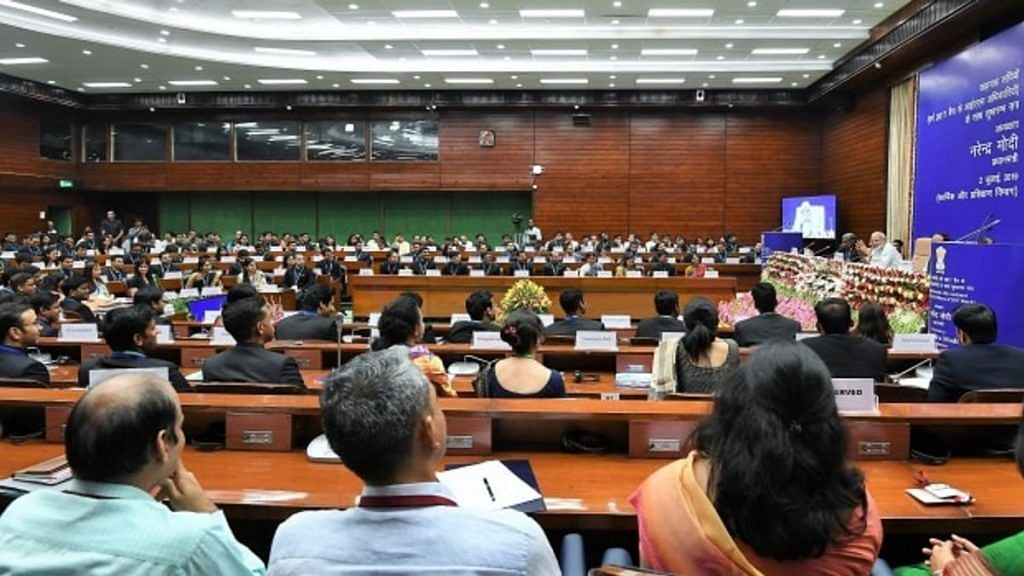New Delhi: Faced with a series of controversial resignations from the coveted Indian Administrative Service (IAS), the Narendra Modi government is looking at toughening the conditions for quitting the civil services, ThePrint has learnt.
According to sources in the government, officials of the Department of Personnel and Training (DoPT) could meet in the coming week to discuss the recent resignations, and come up with a plan to address the problem.
According to current rules, an officer who resigns from the service is bound to pay pending dues or refund the amount spent by the government on foreign training of the officer concerned, explained a DoPT official who didn’t wish to be named. In addition, officers leaving the service during the probation period itself are expected to refund the training amount to the government.
However, in the face of massive vacancies in the All India Services — IAS, Indian Police Service and Indian Forest Service — the government may consider adding some more conditions to deal with potential resignations, the official added.
“One option could be making refunding the training amount mandatory until a few years, and not just probation… But there is no decision yet.”
The government spends an enormous amount of money on the training of officers, and when they leave, it is a loss for the government, the official explained.
Also read: Subhash Garg resignation has few precedents — last senior officer quit 33 years ago
What triggered the move
In the last one month, three officers from the IAS have resigned from the service. Kannan Gopinathan, an AGMUT (Arunachal Pradesh-Goa-Mizoram-Union Territory) cadre officer, and Sasikanth Senthil, a Karnataka cadre officer, resigned on account of the political situation and shrinking space for dissent in the country. Kashish Mittal, another AGMUT cadre officer, resigned because he was being posted in Arunachal Pradesh, according to sources.
The resignations have already become politicised with the BJP and the Congress exchanging barbs over them.
A BJP leader said Sunday the officers quitting the service and citing lack of freedom of speech as the reason, shared “a cozy relationship” with the Left.
Meanwhile, the Congress has accused the BJP of pressurising government servants, and pushing them towards taking this extreme step.
‘Doesn’t address the problem’
While the IAS fraternity too is left worried and divided over the resignations, some officers believe it may be imprudent for the Modi government to try and hold back unwilling officers in the system.
“How would it help if the government made it tougher for someone to leave but that person just doesn’t want to continue? It doesn’t address the problem at all,” said a senior IAS officer who didn’t wish to be identified.
The government has not accepted the resignations of any of the three officers yet, but it is widely acknowledged that accepting the resignation is merely a formality.
Some retired officers say the government is cognizant of the recent developments.
“I think it’s a sign that the government is concerned. But stopping resignations is a debatable strategy and may not even be constitutional,” said T.R. Raghunandan, a retired civil servant.
“Besides, what exactly do they want to achieve? I thought the idea was to keep the morale of the service high. How is that going to be achieved by making the conditions for resignation stricter?”
The existing guidelines on the procedures to be followed in case an officer wishes to resign say: “It is not in the interest of government to retain an unwilling member of service. The general rule, therefore, is that a resignation of a member from service should be accepted.”
Also read: Common foundation course for IAS, IPS officers begins, Modi to address them at Patel statue
